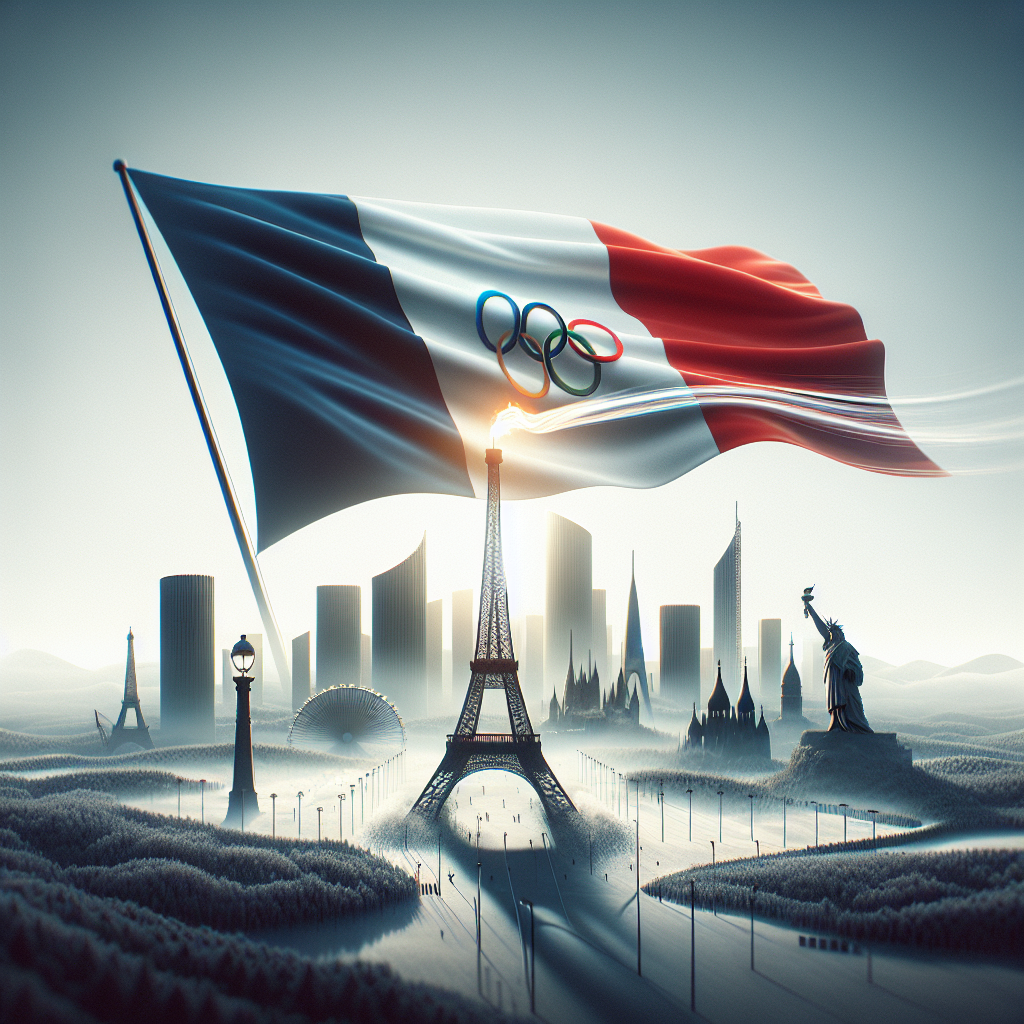PARIS — Fighter jets soared over Paris on Sunday as the annual Bastille Day celebrations aligned with the arrival of the Olympic flame, just 12 days ahead of the Games. This year’s parade had a unique twist, featuring not just soldiers, medics, and police officers, but also athletes and Olympic volunteers.
The Place de la Concorde, traditionally the endpoint of the Bastille Day procession, is currently closed for the construction of temporary Olympic stadiums. Consequently, the parade route was shifted to Avenue Foch, a less familiar road near the Arc de Triomphe.
Typically attracting tens of thousands, this year’s festivities were limited to 6,200 spectators due to space and security constraints. These attendees had to register in advance. With police resources stretched thin in preparation for the Olympics, fewer law enforcement officers participated in the parade.
Despite changes, the traditional air show was retained, with jets trailing blue, white, and red smoke—the colors of the French flag—across the cloudy Parisian sky.
While tanks and planes usually steal the show, this year’s stars were the Olympic flame and Col. Thibaut Vallette, an equestrian gold medalist from the 2016 Olympic Games. Vallette showcased the torch while riding a horse down the parade route.
After the parade, the flame continued its journey through central Paris, accessible to the public without tickets. Marie Niro, 27, witnessed it near the National Assembly. “It’s a moment that we share, a moment that unites us,” she remarked.
Armored vehicles on display were positioned close to the temporary Olympic venue at the Place des Invalides. Nearby, a military recruitment event saw young Parisians mingling with tourists.
Niro acknowledged the mix of military and Olympic elements as “atypical,” but emphasized, “We preserve our traditions.”
The Olympic torch will continue its journey around the capital region and nearby areas, culminating in the Opening Ceremonies on July 26, along the Seine.
Sunday marked the anniversary of the July 14, 1789 storming of the Bastille fortress, a key event at the start of the French Revolution. The day is celebrated across France, with the Paris military parade and Eiffel Tower fireworks being highlights.
President Emmanuel Macron attended the ceremonies, accompanied by his cabinet, including Prime Minister Gabriel Attal.
A week prior, it appeared possible that Macron might have to share power with a far-right prime minister. However, the legislative elections last Sunday resulted in a political deadlock, with no party or alliance gaining a majority in the National Assembly.
Attal, who offered to resign after the elections, was asked by Macron to stay on for “the stability of the country.”
Despite a reduced mandate, Macron continues with his usual activities, including attending the NATO summit in Washington last week.
Security remains a major focus for the Olympic organizers. The Israel-Gaza war has heightened bomb scares, antisemitic incidents, and fears of radicalization. Tensions with Russia over its war in Ukraine, coupled with bans on Russian and Belarusian athletes, have increased concerns of cyberattacks.
Interior Minister Gérald Darmanin announced Saturday that 3,570 people, including “dozens of radical individuals close to Islamist, ultra-left, and ultra-right circles,” have been barred from attending the Olympics.
French authorities aim to screen over 1 million people by the time the Games start, including coaches, athletes, volunteers, and participants in Sunday’s military parade. So far, 770,000 have been screened, Darmanin said.
